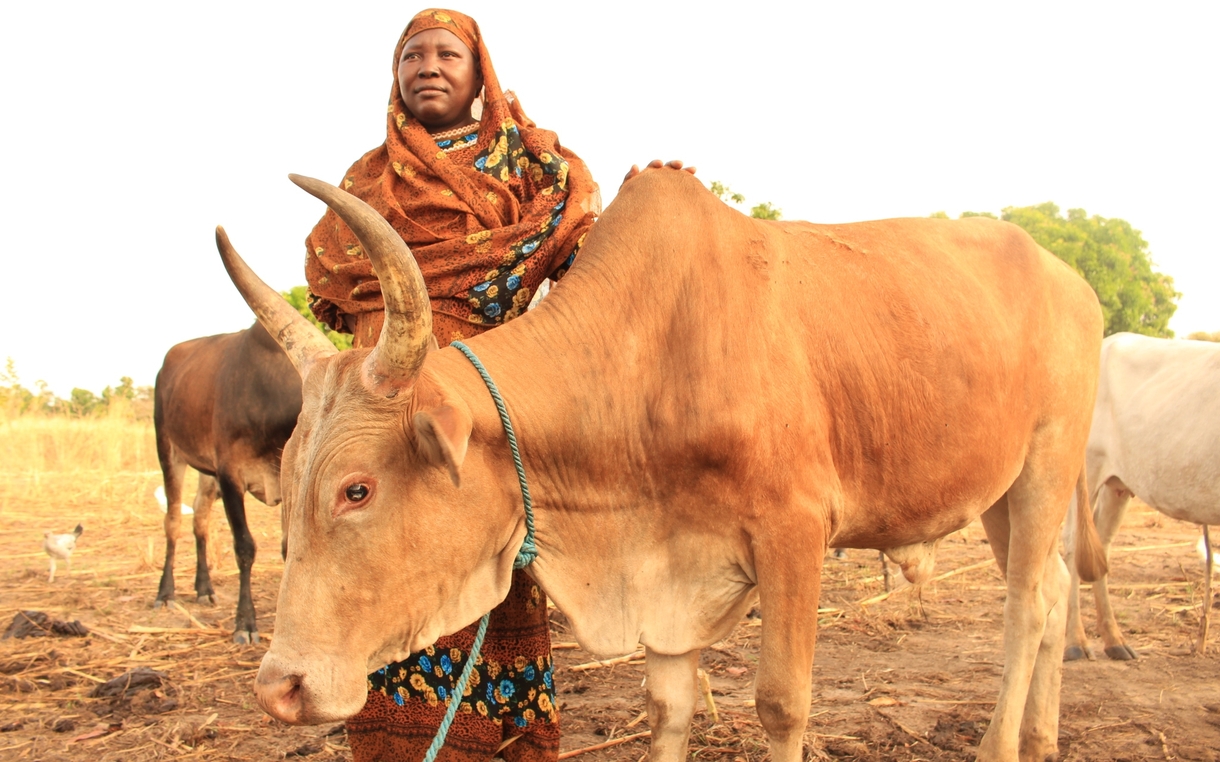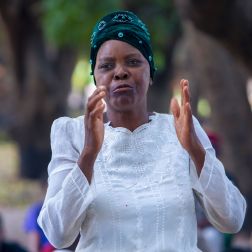- 3 mins read time
- Published: 28th May 2018
Women in South Sudan plow forward in their fields—and in their homes
An Oxfam program supplies female farmers with the tools to manage their crops and to redistribute power in their households.
“When our leaders told us that Oxfam was coming to train us to use oxen to plow our fields, we protested,” says Lucia, a farmer from Wau County, South Sudan. “Our tribe does not know cows and even so, it is a man’s work to train them and lead them through the fields. This is not for us women at all!”
Yet, 12 months later, she’s changed her tune. Lucia grins from ear to ear as she shows off Malual—the young bull that tills her land. Women in Lucia’s community—as in most parts of South Sudan—typically shoulder a huge workload. They do all the domestic work and much of the agricultural tasks. For many, this means waking up early to collect water, light a fire, make tea, and cook lunch, all before heading to a small plot of land to cultivate crops.
Farming often takes from morning to evening, and even then, doesn't always provide enough food to feed the family. This was Lucia’s experience until last year.
That’s where Malual come in.
Traditionally, people in Lucia's community use malodas—small tools with a sickle-shaped head—to till the land, but because the tools are so small, it takes a long time to work the land. Using oxen and employing techniques like planting in rows means women can cultivate much larger plots of land in less time.
“I am growing sorghum, okra, and peanuts, and I have been able to increase the size of the land I plow from half a fedan [half an acre] to more than two fedans [two acres],” she says. “Some of the food I eat as soon as I harvest; some I save for the lean season to eat or to sell. I’m also saving some for planting later this year.”

In the past, Lucia and her family skipped lunch because they only had enough food to stretch between breakfast and dinner. “My children are much happier and I can see they are looking well,” she says.
Lucia is earning enough money to pay some bills, and the time she's saved using oxen is going into a side business selling cakes—all of which has earned her the deep respect of her husband.
As part of the same project, she and her husband took part in workshops focused on women’s rights. “Now he respects me so much more,” she says with a grin. “The way we are together is completely different. Now we share all the tasks in the household. He is cleaning more, mopping, bringing water, and washing clothes. I am able to rest a bit more now.”




